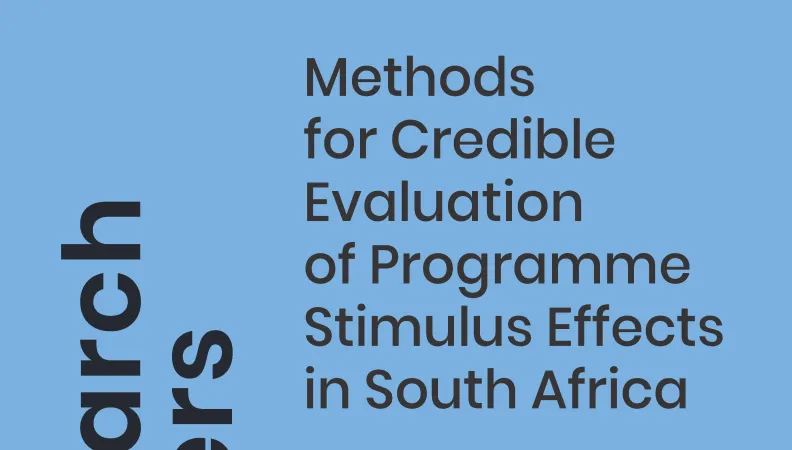Share the page
Methods for Credible Evaluation of Programme Stimulus Effects in South Africa
Published on

In response to the effects of the COVID-19 pandemic, in 2020-2021 the South African government instituted various economic relief and stimulus programmes. These included substantial increases to social grant disbursements, and a large new targeted jobs programme. Potential “spillover” or “multiplier” effects of these programmes are an important part of prospective policy evaluation, and are of particular interest during a period of fiscal constraints. This review considers approaches for quantitatively evaluating stimulus effects of government programmes, with particular reference to the South African pandemic response. After discussing the general approach of random and quasi-random programme evaluation methods, we review the existing international literature evaluating stimulus effects of jobs programmes and cash transfers. We highlight key lessons in terms of methods, data requirements, and the necessity of rigorous local evaluations. We also describe the South African programmes, and discuss local data sources. We suggest that the social grant top-ups and jobs programme present an exciting opportunity to credibly measure programme stimulus effects in South Africa.
Useful Information
-
Authors
-
Ihsaan BASSIER, Joshua BUDLENDER
-
Coordinators
-
Edition
-
306
-
Page number
-
40
-
ISSN
-
2492 - 2846
-
Collection
-
Research Papers
